Why Choose Pavers instead of poured Concrete
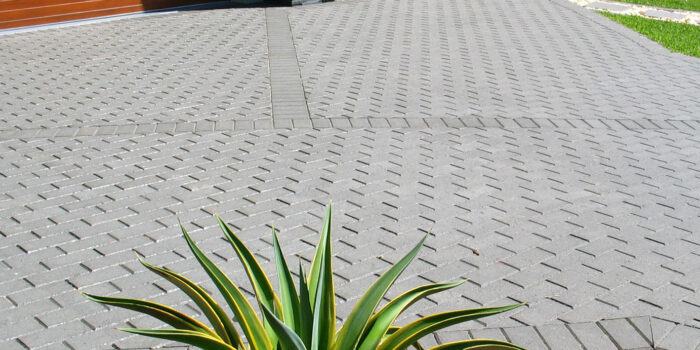
Pavers versus Concreting
Hear what the experts have to say when it comes to pavers vs concrete. As well as why pavers are the best choice when it comes to driveways and the surrounding areas of your home.
Add Value to your Home
Pavers are the best option to add visual appeal to your property and add value to your home. Pavers come in a range of colours, styles, sizes and textures, which means you can match them to the style and surroundings of your home. Poured concrete and concrete slabs can get unsightly cracks caused by soil movement, and concrete doesn’t have the same aesthetic appeal that pavers do. They are sturdy, durable, low maintenance, easily repairable and best value for money.
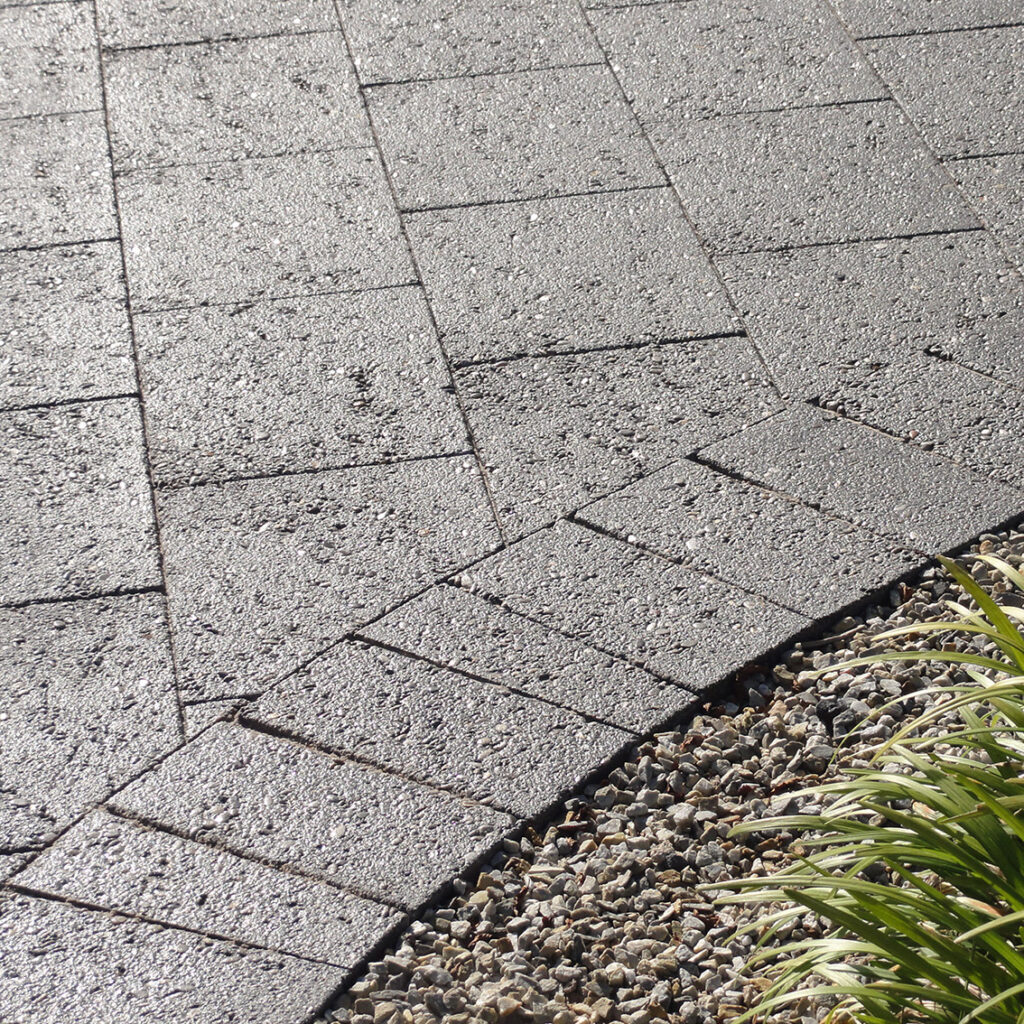
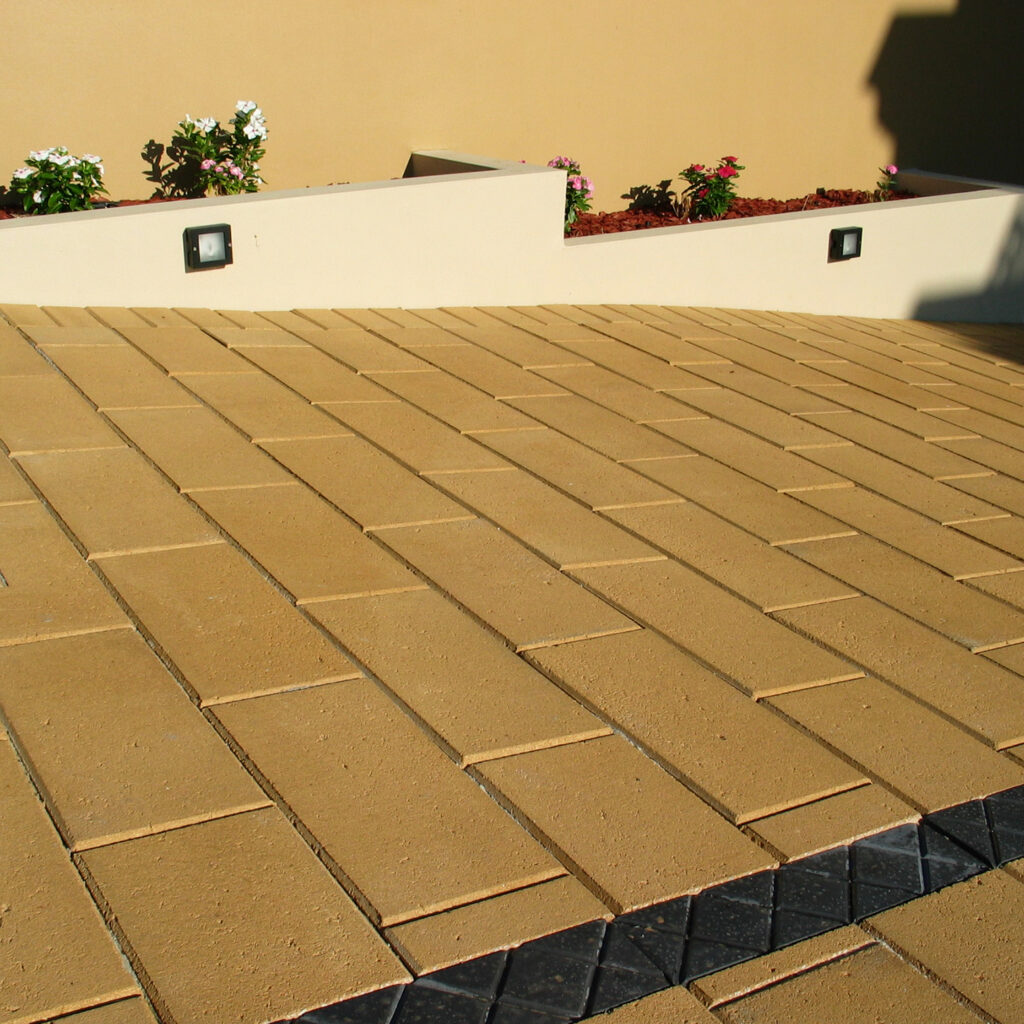
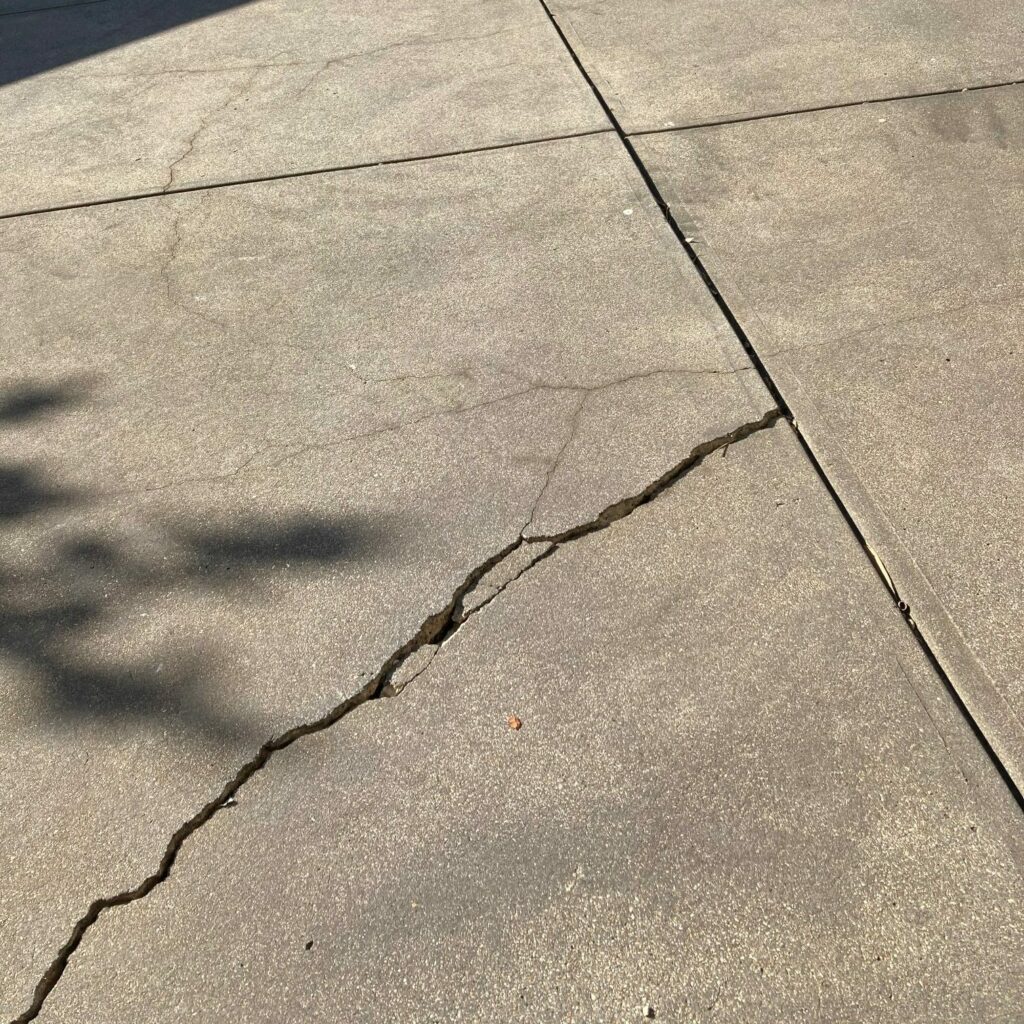
User Friendly
Paving is an excellent option for the DIYer. If you have the right know-how, resources and tools, then you can undertake your own projects. If you get a tradie in to do your paving, it can be easier and more cost effective to use pavers instead of poured concrete. Plus, using pavers have a lot more flexibility, and you can create some great designs and styles with your paving.
You can view our DIY Paving guide here.
Versatility and Paver Designs
There are lots of unique designs you can achieve with paving. Pavers come in a massive range of patterns, colours, sizes and finishes that you can’t achieve with concreting and because of the large selection you can choose from, you can create some stunning patterns. Sizes available range from 600x600mm to 200x100mm, and with the various colours plus textures, you can also complement any surrounding elements of your home and garden.
You can view our Paving Patterns brochure here.
Repairable
If you need to access underground services, pavers are much more easily repairable than concreting. Cutting through concrete slabs to access any underground services can be challenging, and then trying and repair the concrete can be difficult and will not match with the existing concrete and will appear ‘patched up’. However, these can easily be removed and then replaced with pavers, which makes them much easier to deal with and look aesthetically better.
With South Australia’s highly reactive soil types, there is a high incidence of concrete cracking. It is also not as appealing and versatile as pavers.
Can Be Replaced
Keep a few spare pavers on hand so that if you ever crack or stain a paver, you can simply remove it and replace it with a new one.
Long Lasting – Concreting vs Pavers and What Is Best?
If you look after your pavers with proper maintenance then rest assured they will last you for many years to come. Pavers are highly durable and you can also get them in various finishes and textures, which makes them great for areas that require a slip resistant finish. And for extra peace of mind, you can seal your pavers to help keep them looking like the day they were laid. At APC, we have a range of sealers that helps avoid stains and marks.
You can view our guide on paver maintenance and remedies here.
Self-Draining
Pavers should be placed on a solid road base and a layer of bedding sand which maintains the permeability of the pavers. If you lay pavers properly around your house, then the problem of ground water around your home will not occur. If you lay your pavers by following our DIY paving brochure, the issue of ground water around your home should not occur.
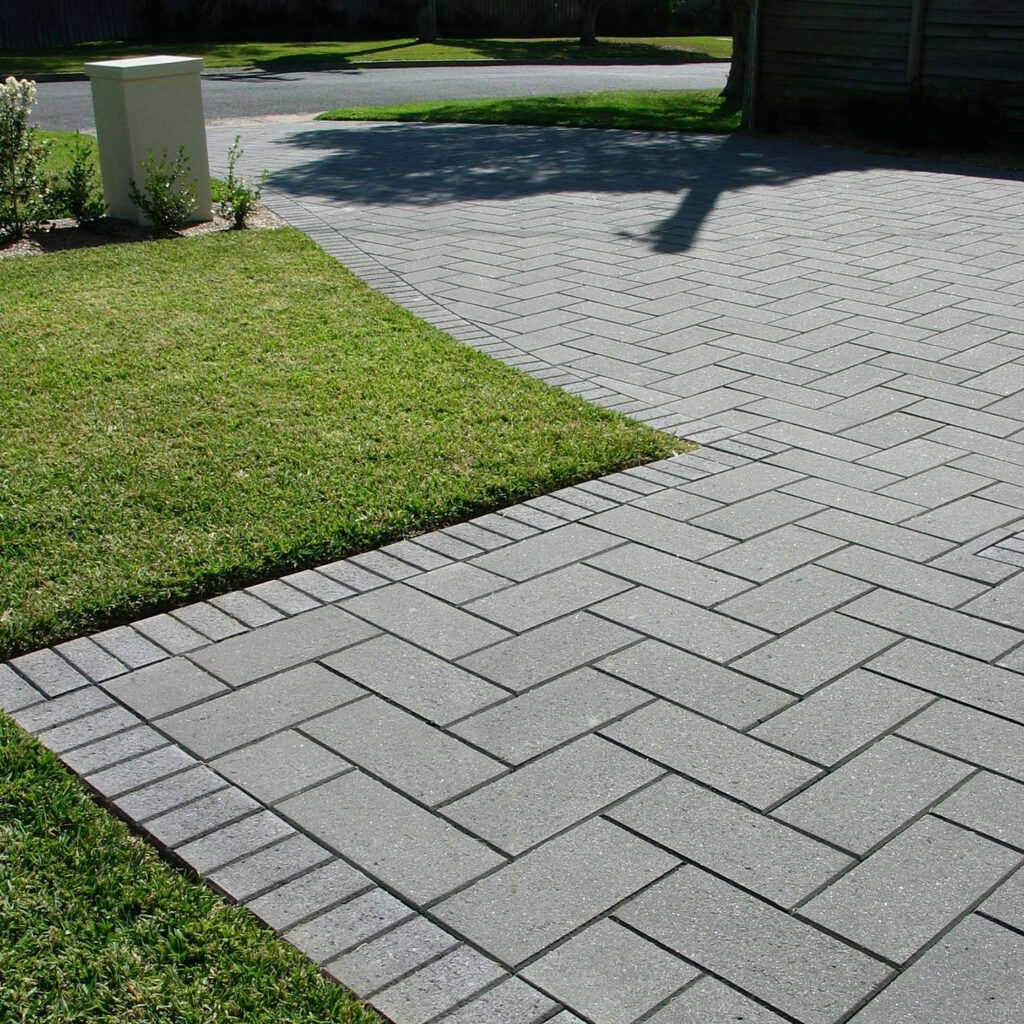
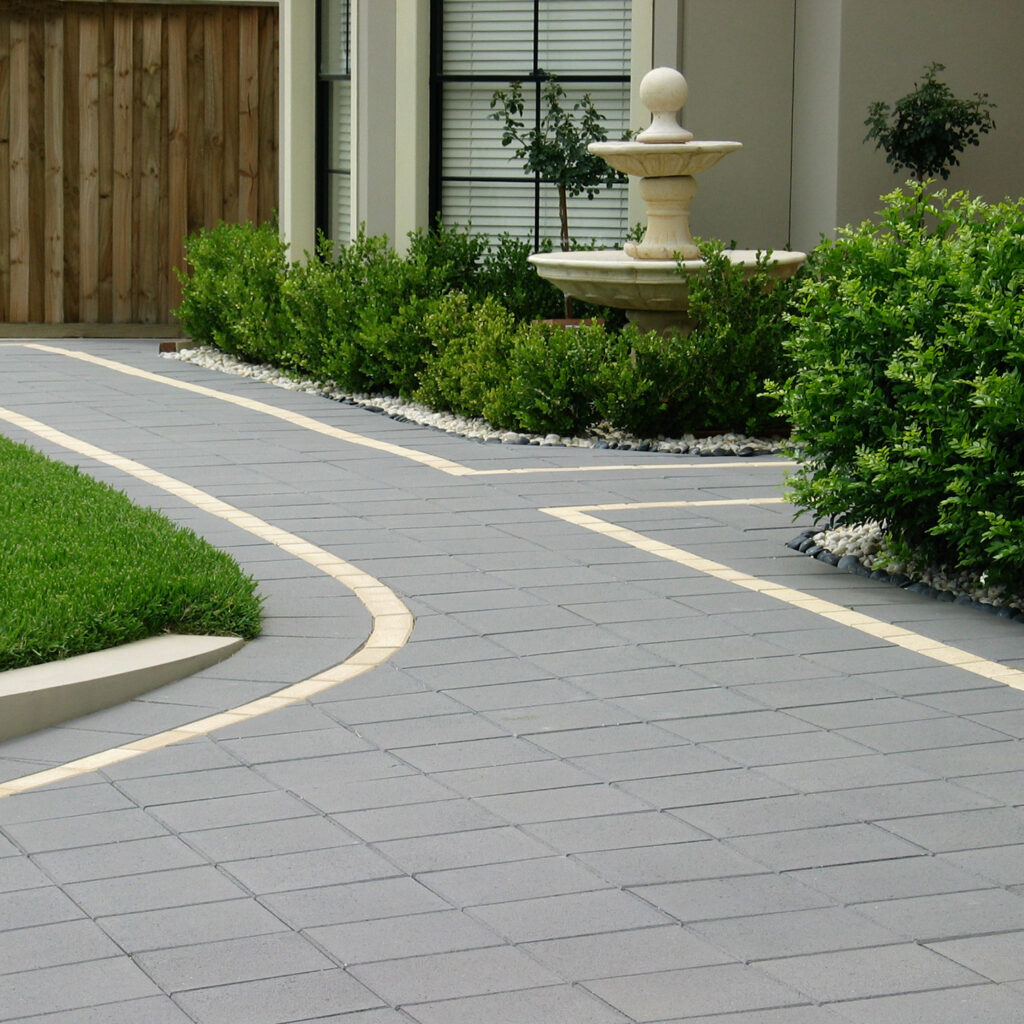
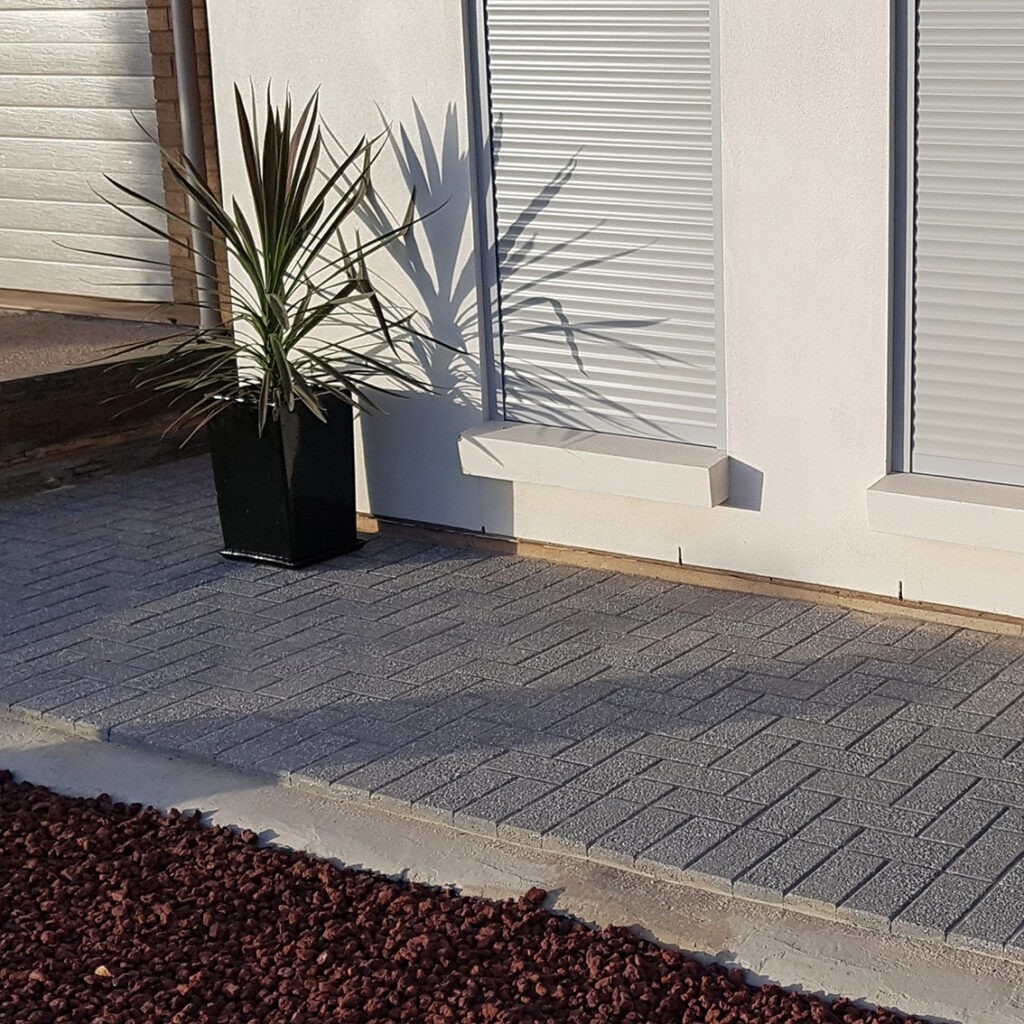
Value for Money
Pavers are available at very affordable prices. It does not matter the style you choose as there is a cost effective option within that range. Paving is cheaper compared to concrete and is a higher quality product. The cost effectiveness also applies in terms of installing. The only time the costs are almost similar is the preparation time because the space has to be excavated, levelled and filled with the bedding material which forms the base. For your pavers to be laid correctly and to last, it is advisable to use appropriate bedding sand under the pavers.
Easy To Update
How easy is it to remove a concrete slab? It will require you to use either a sledge hammer, demolition saw or a jack hammer. If the concreting you want to remove covers a large space, you must apply excavators and bobcats. However, this is not the case when it comes to pavers. Pavers only require you to lift these and relay your new pavers.
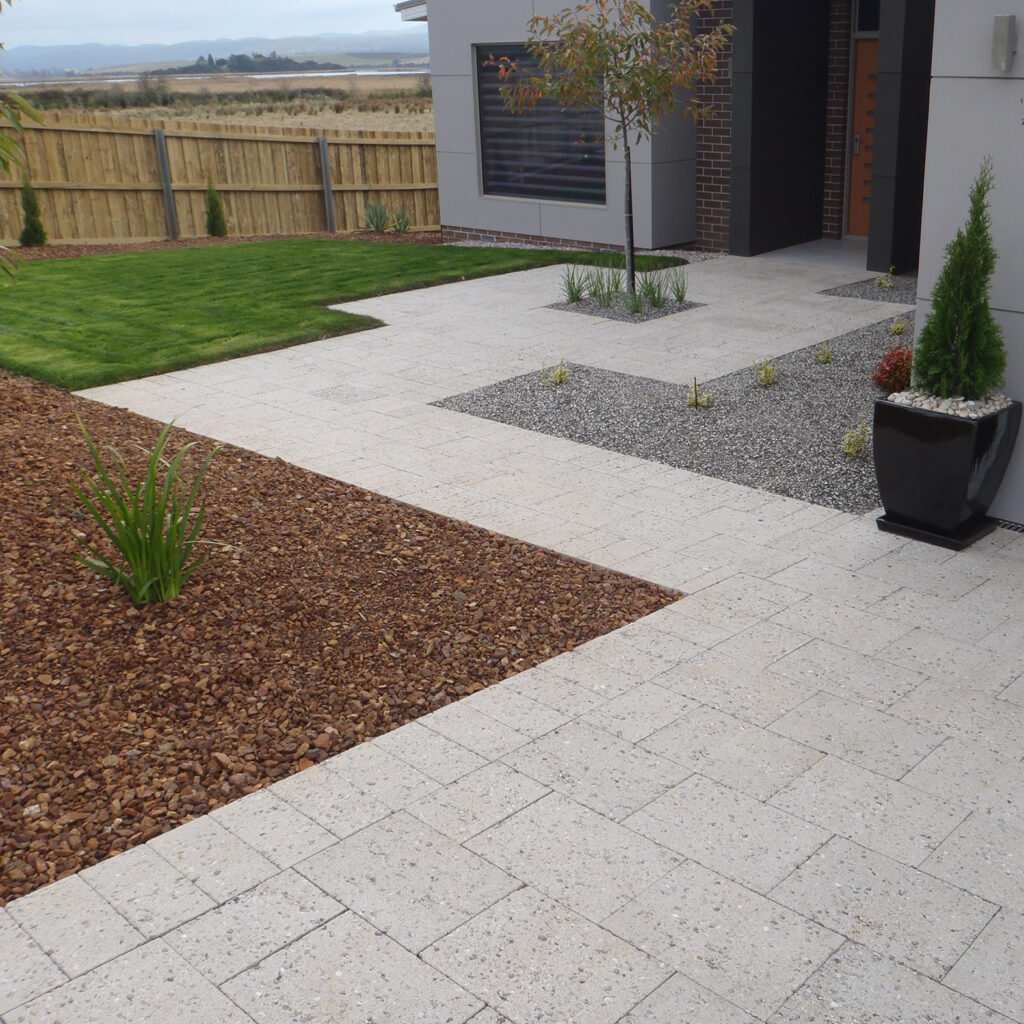

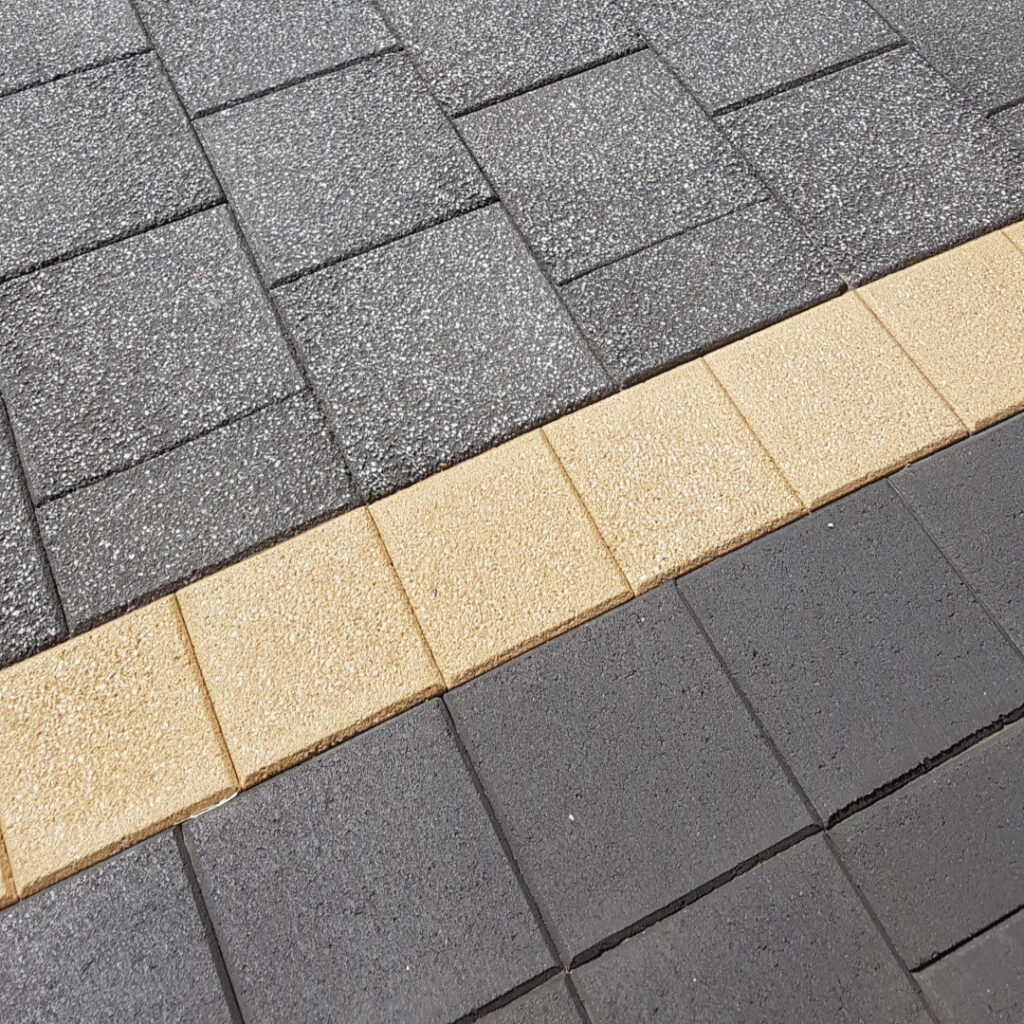
How Do I Know What Types of Pavers Are Best Suited for My Area?
There are various options for paving your patio or driveway or any other paving project around your home. Make sure you look at the features and benefits of the pavers to ensure they will suit the functionality of your area and your lifestyle.
Economical Options
Budget Pavers
If you are looking for the most economical option. We have a range of budget pavers that still provide aesthetic appeal.
View our Budget Pavers here –
Brick Pavers
Another option is our brick pavers, which are cost-effective and versatile as they can be used for a range of purposes, including patios and alfresco, courtyards and more. Brick Pavers are available in 50mm and 60mm, making them an excellent option for driveways.
View our brick pavers here –
Seconds & Specials
We also have a range of specials and seconds, which are ideal for budget conscious paving areas. Some people use our second’s range for areas such as garden and tool sheds or chook sheds.
View our seconds range of pavers here –
It’s always best to visit your nearest Australian Paving Centre to view their second’s range as their stock can change quickly. Find our contact details and trading hours here.
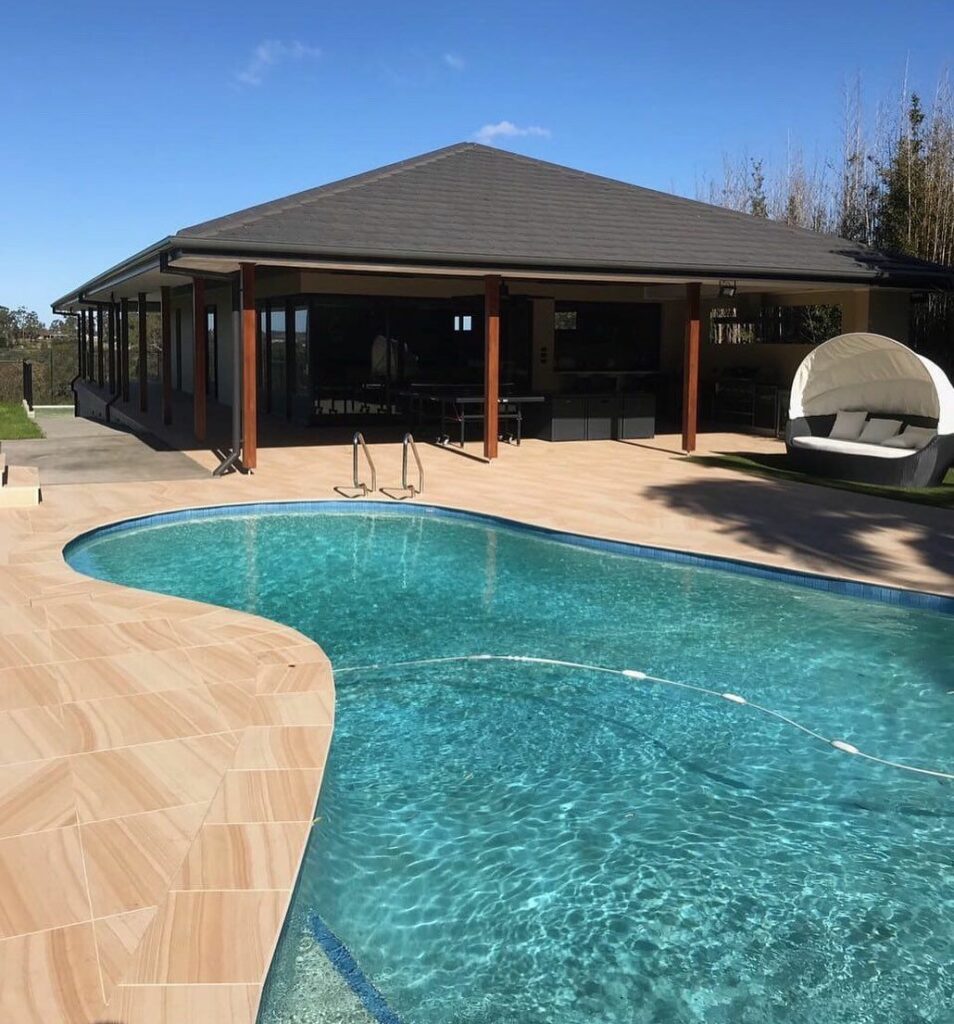
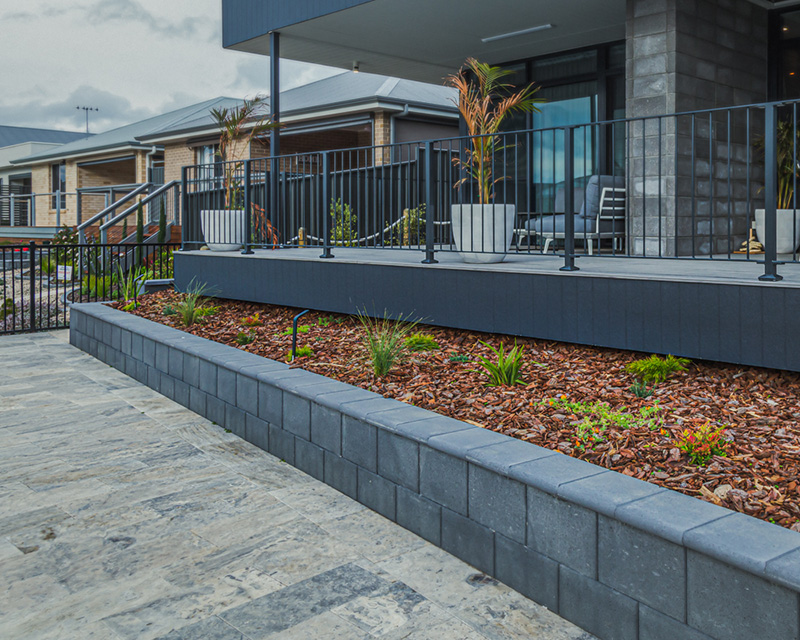
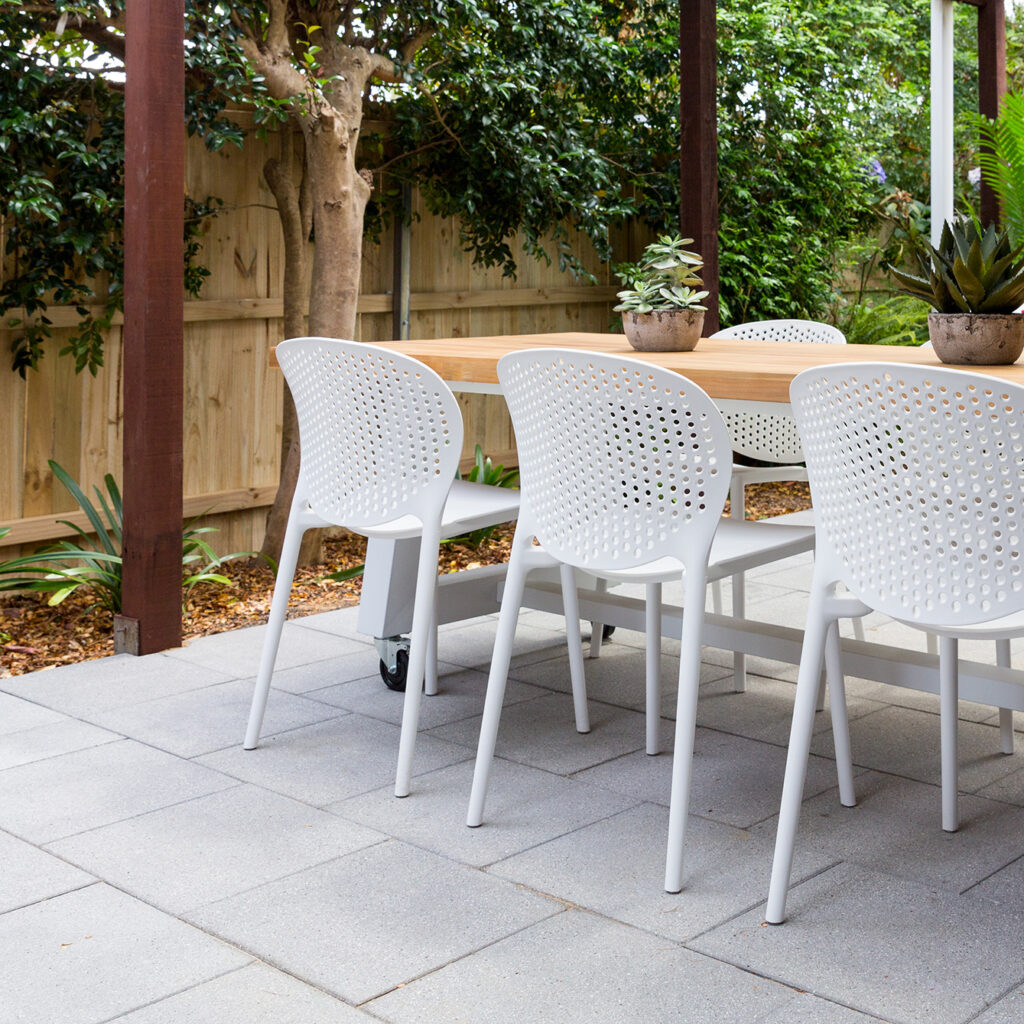
Salt and Slip Resistant
Not all pavers are created equal, and pavers around your pool must be slip resistant and salt resistant to withstand pool water. Travertine pavers are not only slip and salt resistant but also cool under foot, which is perfect for areas in full sun. They also pass the wet bare foot test, making them ideal for families especially with children.
View our range of pool pavers here –
And our range of Travertine pavers here –
Another thing you may want to consider is if you want a seamless finish with matching pool copers and step treads. Not all pavers have matching pool coping, so make sure you check this first. View our range of pool coping and step treads here.
Lifestyle Spaces
If you’re paving an entertaining space then you may want to consider a paver that is hard wearing, durable and stain resistant. If you have children or pets, you may also want to consider a paver that is scratch resistant. Consider the space you are paving as well as your lifestyle to ensure your paver meets your expectations.
Our porcelain Stoneware pavers are very popular for this reason as they have so many features such as scratch, slip and salt resistant, hard wearing, strong and durable. They are also very stylish due to their large format size.
View our range of Stoneware pavers here –
If you have a smaller alfresco space but want to create the illusion of a larger area, then consider large format pavers. They are stylish and we have a massive range of colours and finishes.
View our range of large format pavers here –
You can view our complete range of patio and alfresco pavers here –
Load Bearing Areas
If you are paving an area that needs to sustain heavy loads, such as driveways, you need a paver minimum of 50mm thick.
You can view our range of driveway pavers here –
This is also where your paving patterns are not just for aesthetics but for functionality as well. If you’re using a brick paver, lay it in an interlocking pattern such as a herringbone to increase durability and strength.
Exposed Aggregate Concrete Pavers
Exposed aggregate pavers provide a non-slip textured finish as the top layer of the paver has been removed to expose the aggregate within the paver. They are also an eco-friendly paver option as they are made from recycled products. They are also hard wearing and great for high foot traffic areas.
View our exposed aggregate concrete pavers here –
Concrete Pavers
Concrete pavers are inexpensive compared to pavers made of sandstone, granite, clay and are more durable, particularly when used in driveways. Concrete pavers are far more practical than poured concrete. The important benefit of concrete pavers is that they expand and contract with the seasons and do not crack like concrete slabs.
View our concrete pavers here –
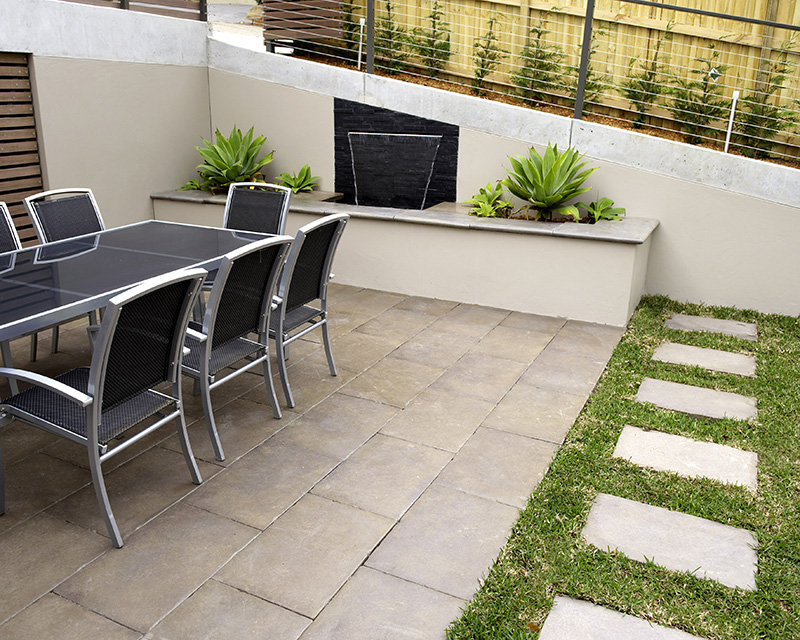
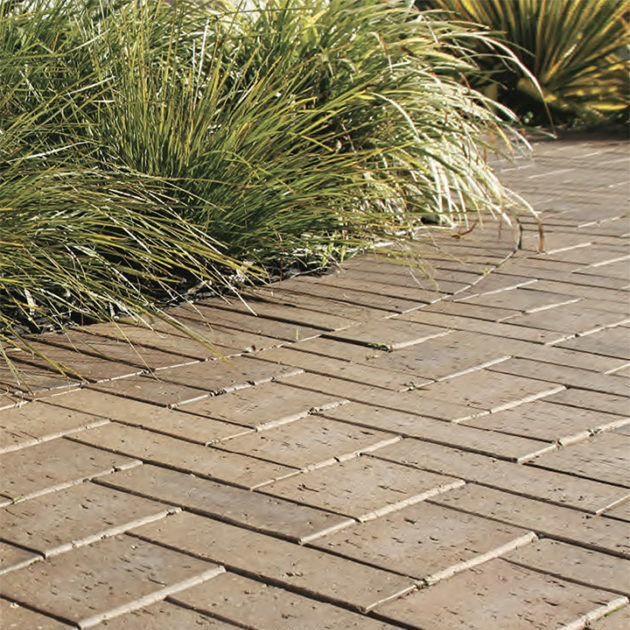
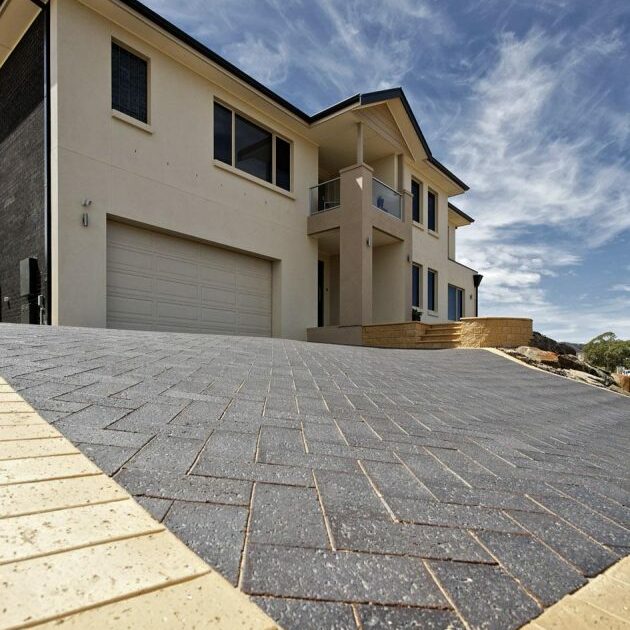
Why Should I Pave My Driveway Instead of Concreting?
A driveway is one of the first things that people notice when passing your house, so it’s important to note that first impressions count! Now, that being said, there is a range of driveway paving options available for you to re-imagine your driveway, but some offer more flexibility than others.
For example, there are a lot of benefits in choosing pavers. Pavers offer a more extensive range of colours, patterns and textures that you can’t necessarily achieve with poured concrete.
While some people believe that pavers are hard to curve, they can easily curve and offer flexibility in so many other areas. With pavers, you can mix and match colours with a complementary or defining header course, border or pattern design. You can even add a diamond to your driveway!
Another thing we love about using pavers for your driveway because they don’t have hairline cracks and unsightly expansion joints that are so easily spotted in concrete driveways. Pavers are highly durable and versatile and even better, they are really easy to maintain. They are ideal for highly reactive soil types, which are prevalent in Adelaide.
Pavers Are Simple to Repair
A truck reversing into your driveway might cause the odd cracked paver, but you can easily and inexpensively fix this compared to concrete which is not easy to repair and will look ‘patched up’.
Pavers can also be lifted off the ground if underground services are required, such as sewer, power, stormwater pipes, etc. Pavers provide a much simpler alternative than having to cut up concrete and patch it up. If you’re still after concrete, we have a range of concrete pavers.
The other benefit is that whatever pavers you use for your driveway, you can use for around your home, pathways and alfresco areas if you wish to have a uniform and cohesive look. The aesthetics of your home are just as important as the functionality and pavers are great for adding value to your home.
view our range of driveway pavers here –
Pavers can be just as strong as concrete, especially when laid with an interlocking pattern which increases the strength of the pavers as it further compacts over time.
It’s recommended to pave a driveway rather than concrete in case you need to access services that run underneath your driveway. Removing pavers is much easier than cutting up a concrete driveway. A paved driveway also looks better and adds street appeal which then adds value to your home.
Paving is a cheaper option than concreting and is a more superior product. The cost of installing pavers instead of concrete is cheaper too.
You get a lot more design flexibility and options with paving rather than concrete. Pavers come in a variety of materials such as concrete, natural stone and porcelain. You also get a large range of colours, textures and styles and create a range of patterns with various sizes.
Pavers are much less unlikely to crack, unlike poured concrete which can get very large and unsightly cracks caused by soil movement. These large cracks can also be a tripping hazard as the soil movement can create a height difference in the concrete crack.
You get much less variation or patterns with poured concrete. However, pavers are available in a huge range of sizes and colours so you can achieve many appealing patterns and designs.
If you’ve seen a product that you like, you can get a quote online here.
Or visit your nearest APC here to talk with one of our friendly staff about your paving project and they can help provide you with the right advice.
Visit us at APC to pick up a free sample!
Or, send us a product enquiry or request a quote online









